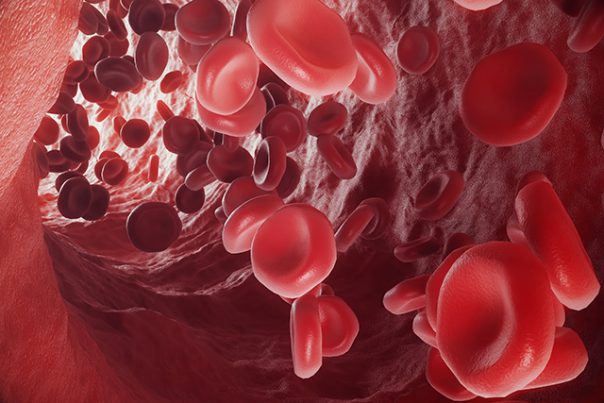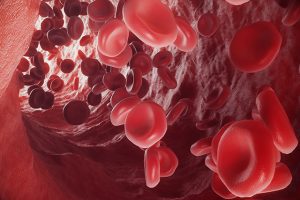
Thrombocytopenia – causes, side effects and treatments at NaturalPedia.com
Wednesday, July 18, 2018 by Michelle Simmons
http://www.naturalpedia.com/thrombocytopenia-causes-side-effects-and-treatments-at-naturalpedia-com.html

Thrombocytopenia is a deficiency of platelets, also known as thrombocytes. Platelets are parts of the blood that help blood to clot. Sometimes, this condition is associated with abnormal bleeding. The condition occurs when the bone marrow produces too few platelets or when too many platelets are destroyed or accumulated within an enlarged spleen. The bone marrow may not be able to produce enough platelets due to other health conditions, such as aplastic anemia; cancer in the bone marrow, such as leukemia; cirrhosis or liver scarring; folate deficiency; infections in the one marrow; myelodysplastic syndrome; and vitamin B12 deficiency. The use of certain drugs, such as in chemotherapy treatment, may also result in a low production of platelets in the bone marrow. Increased breakdown of platelets also occur due to health conditions, such as disorder wherein the proteins that control blood clotting become over active; drug-induced low platelet count; enlarged spleen; disorder in which the immune system destroys platelets; and disorder that causes blood clots to form in small blood vessels, leading to a low platelet count.

Known side effects of thrombocytopenia
The known side effects of thrombocytopenia include red, purple, or brown bruises called purpura; a rash with small red or purple dots called petechiae; nosebleeds; bleeding gums; bleeding from wounds that lasts for a longer period or does not stop on its own; heavy menstrual bleeding; bleeding from the rectum; blood in the stools; and blood in the urine. A low platelet count can also lead to other complications, such as excessive blood loss, anemia, immune system disorders, and in rare cases, bleeding in the brain.
Body systems harmed by thrombocytopenia
The body system harmed by thrombocytopenia include the cardiovascular system.
List of foods or nutrients that prevent thrombocytopenia
Foods and nutrients that can prevent thrombocytopenia include papaya, wheatgrass, pumpkin, spinach, vitamin C, Indian gooseberries, sesame oil, and beetroot.
Treatments, management plans for thrombocytopenia
Natural treatments for thrombocytopenia include the following:
- Aloe vera – Aloe vera is known to increase platelet count and improve the symptoms of thrombocytopenia. Drinking aloe vera juice daily can reduce bleeding of the gums and mouth and provide an energetic boost.
- Ashwagandha – Ashwagandha helps inhibit the immunosuppressive activity of the body to allow platelet counts to rise.
- Papaya leaf juice – Regular consumption of papaya leaf juice can result in higher platelet counts.
- Red peony – Red peony, a popular Chinese herbal medicine, can boost platelet count. However, it should only be used with caution because it also acts as an anticoagulant.
- Vitamin C – Taking vitamin C every day can reduce bruising. This vitamin is also an important component of collagen, which makes bones, muscles, tissues, and blood cells.
- Exercise – Lack of physical activity can result in thrombocytopenia. Moreover, it can trick the body into shutting down, producing lesser platelets. In turn, this causes you to feel more tired and despondent. Thus, getting enough exercise can enhance the body’s metabolism and blood cell factories.
- Stress management – High stress levels and constant stress in the body can lead to a drop in platelet count. Thus, managing stress can help treat thrombocytopenia.
Where to learn more
- How to Increase Your Platelet Count the Natural Way!
- 8 Foods That Increase Low Blood Platelets Count
- Increase Blood Platelets Naturally By Using This 7 Super Food
- Papaya leaf juice is good for your blood; the drink can remedy anemia and fight off dengue fever
- This simple herbal mixture can be used to prevent blood clots
Summary
Thrombocytopenia is a deficiency of platelets.
Thrombocytopenia causes red, purple, or brown bruises called purpura; a rash with small red or purple dots called petechiae; nosebleeds; bleeding gums; bleeding from wounds that lasts for a longer period or does not stop on its own; heavy menstrual bleeding; bleeding from the rectum; blood in the stools; and blood in the urine.
Foods and nutrients that can prevent thrombocytopenia include papaya, wheatgrass, pumpkin, spinach, vitamin C, Indian gooseberries, sesame oil, and beetroot.
Thrombocytopenia can be treated with aloe vera, ashwagandha, red peony, papaya leaf juice, vitamin C, exercise, and stress management.
Sources include:
Tagged Under: Tags: Thrombocytopenia





